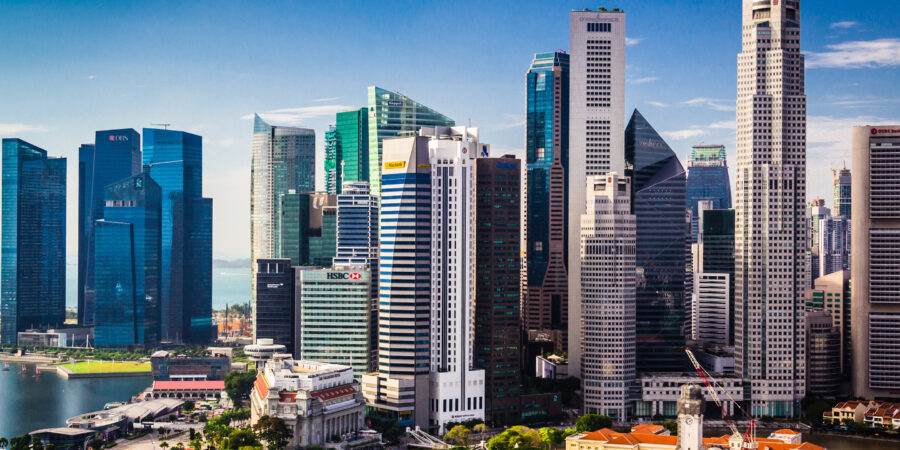Doing Business in Singapore
Singapore is an amalgam of an indigenous Malay population with a majority of third-generation Chinese as well as Indian and Arab immigrants. As a result, it is very difficult to generalize about the country as a whole. The following guide to doing business in Singapore shall offer some introductory tips.
To Shake or Not to Shake?
When doing business in Singapore the most common form of meeting is the handshake. However, each of the three main ethnic groups has their own traditions and protocols.
Malays: As the majority of Malays are Muslim one should note that physical touch between sexes is not commonplace. When meeting a Malay woman wait to see if she extends her hand first, if so then it is OK to shake it. If not, then bow slightly and place your hand over your heart as a sign of respect. Between men, a normal handshake is the norm when doing business.
Chinese: Among the Singapore Chinese a bow is the traditional greeting. However, as a foreigner, you would not be expected to do so. A (not too firm) handshake is fine. The Chinese are more likely to be comfortable shaking hands with women.
Indians: Many Indians will shake hands although the older generations and traditionalists still use the namaste “ a slight bow with palms brought together”. Some of the more traditional Hindus may be uncomfortable shaking hands with women so it is always a good idea to use the namaste if one finds themselves in this situation.
Communication
When doing business in Singapore you will notice the people are very polite and as a result their communication style can come across as quite vague or confusing. This has evolved due to the need to maintain face and respect relationships. For example, even if someone disagrees with you they would never outrightly say no They may even use the word yes; but it could mean anything from I agree to m not sure to no. As Singaporeans communicate implicitly it is up to the other party to read between the lines to make sense of what is being said.
Similarly, when asking questions Singaporeans will use a yes/no formula, as in Would you like to have dinner or not Although this may come across as slightly rude it is in fact the opposite. The question is being asked in such a way that it does not impose any obligation on the person to give an answer in any particular way, in other words, Whatever you are comfortable with When doing business it is not uncommon for Singaporeans to laugh or smile at seemingly inappropriate points in meetings.
Again this relates back to protecting the face and maintaining harmony. A smile may actually hide shyness, anger, or disapproval whereas a laugh could be disguising anxiety.
Business Meetings
Business people in Singapore are cautious. They like to make sure they are doing business with the right person(s) who also offer the best deal. As a result, it is necessary to take things slowly, spend time establishing a good relationship, and demonstrating your capabilities.Maintaining face is critical.
Ensure you are polite and professional at all times. As with the above, try not to be too direct in asking questions or giving answers. Rather than say no to a request rephrase it as I will try, I am not sure or Well see Losing your temper is a serious no-no. Always speak in gentle tones and remain calm even when under great pressure. This will gain you much more respect than becoming animated and passionate
Language
English is the common language of the island. The local colloquial dialect of English is known as Singlish It has many creole-like characteristics, having incorporated vocabulary and grammar from various Chinese, Malay, and Indian languages.







Leave a Reply